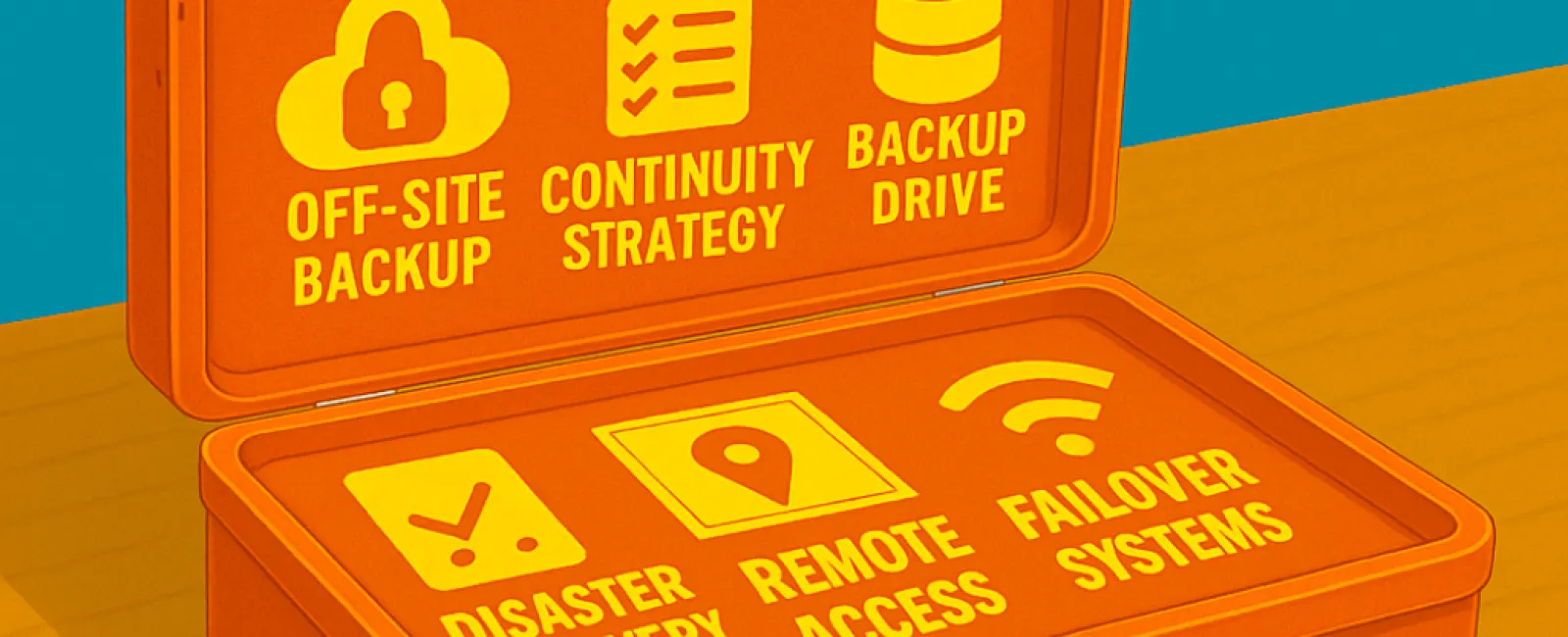July 28, 2025
Unexpected power failures, cyberattacks, hardware malfunctions, and natural disasters can strike without warning, posing severe threats to small businesses. Many believe that having backups is sufficient, but the reality is that simply restoring files doesn't guarantee business continuity. Without access to critical systems, the ability to support remote work, or effective communication with your team and clients, even brief interruptions can cause lasting damage. A dependable IT partner prepares you not just with backups, but with a comprehensive strategy to ensure your business operates seamlessly under any circumstance.
Backups Alone Won't Protect You — You Need a Robust Continuity Plan
Backups are undeniably important, but they represent only one piece of the puzzle. What you truly need is a proactive business continuity plan designed to keep your operations running smoothly during and after any crisis.
When your systems fail, files become unreachable, or your workplace is compromised, relying solely on local backup files offers little relief. Without a well-defined plan for rapid recovery, your business faces significant risks including lost revenue, damaged reputation, and regulatory non-compliance.
Understanding the Critical Difference: Backups vs. Business Continuity
Many businesses make the mistake of equating backups with continuity:
●
Backups enable data restoration.
●
Continuity ensures your business remains fully operational, no matter the challenge.
A comprehensive continuity plan addresses essential questions such as:
●
How quickly can we recover?
●
Where will the team work if the office is inaccessible?
●
Which systems are absolutely critical?
●
Who is responsible for initiating the recovery process?
Key elements of a solid plan include:
●
Encrypted, off-site, and immutable backups
●
Prioritized recovery objectives (RTO/RPO)
●
Preparedness for remote work
●
Redundant infrastructure and automatic failover systems
●
Regular disaster recovery drills and simulations
If your IT provider can't confidently guide you through these vital components, you aren't truly protected—you've just been fortunate so far.
Could This Happen to Your Business? Absolutely.
This is not a scare tactic; these are real-world events with serious consequences. Recently:
●
Florida hurricanes displaced hundreds of businesses, leaving those without cloud access completely immobilized.
●
North Carolina floods destroyed on-site servers, wiping out months of critical records and invoices.
●
California wildfires razed entire office buildings in the Pacific Palisades, many lacking off-site recovery solutions.
●
Numerous small businesses targeted by ransomware have painfully discovered their backups were either corrupted or never tested.
Disasters don't discriminate—they impact businesses of all sizes, including yours.
Essential Questions to Ask Your IT Provider Today
If disaster strikes tomorrow, will your business keep running?
Make sure to ask your IT provider:
●
How quickly can we recover from a ransomware attack?
●
Are our backups regularly tested and which systems do they cover?
●
What is the contingency plan if a flood or fire makes our office unusable?
●
Does our continuity strategy comply with industry standards and regulations?
●
Can we maintain client services if our team must operate remotely?
If you don't have full confidence in these answers, your business could already be vulnerable.
Disasters Are Inevitable. Downtime Is Optional.
While you can't prevent every outage, storm, or cyberattack, you can control how your business responds.
An average IT provider helps you recover.
A top-tier IT partner ensures your business never misses a beat.
Ready to assess your business's readiness?
Click Here or call us at 408-335-0353 to schedule your FREE Discovery Call and let's safeguard your operations against any disaster.





